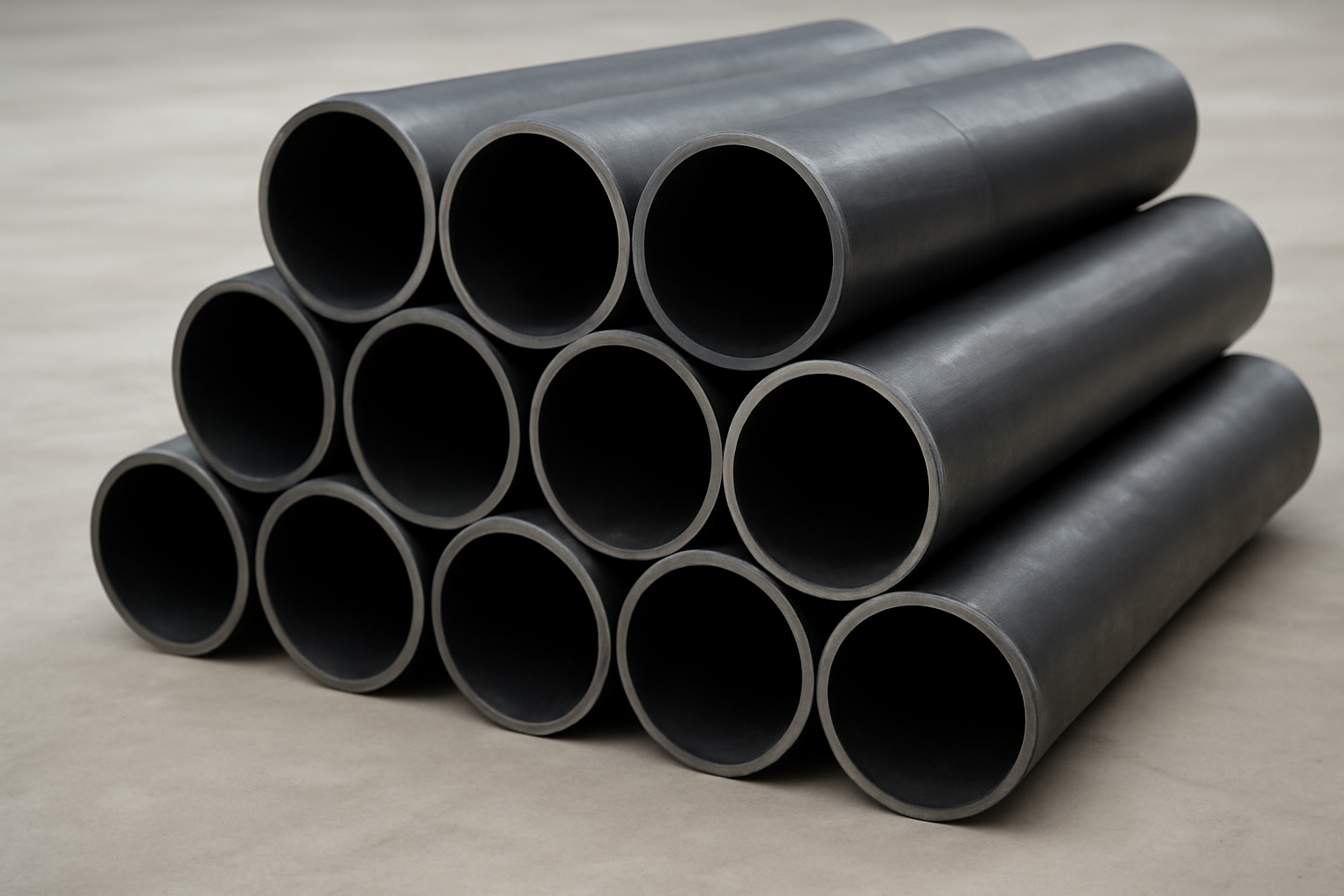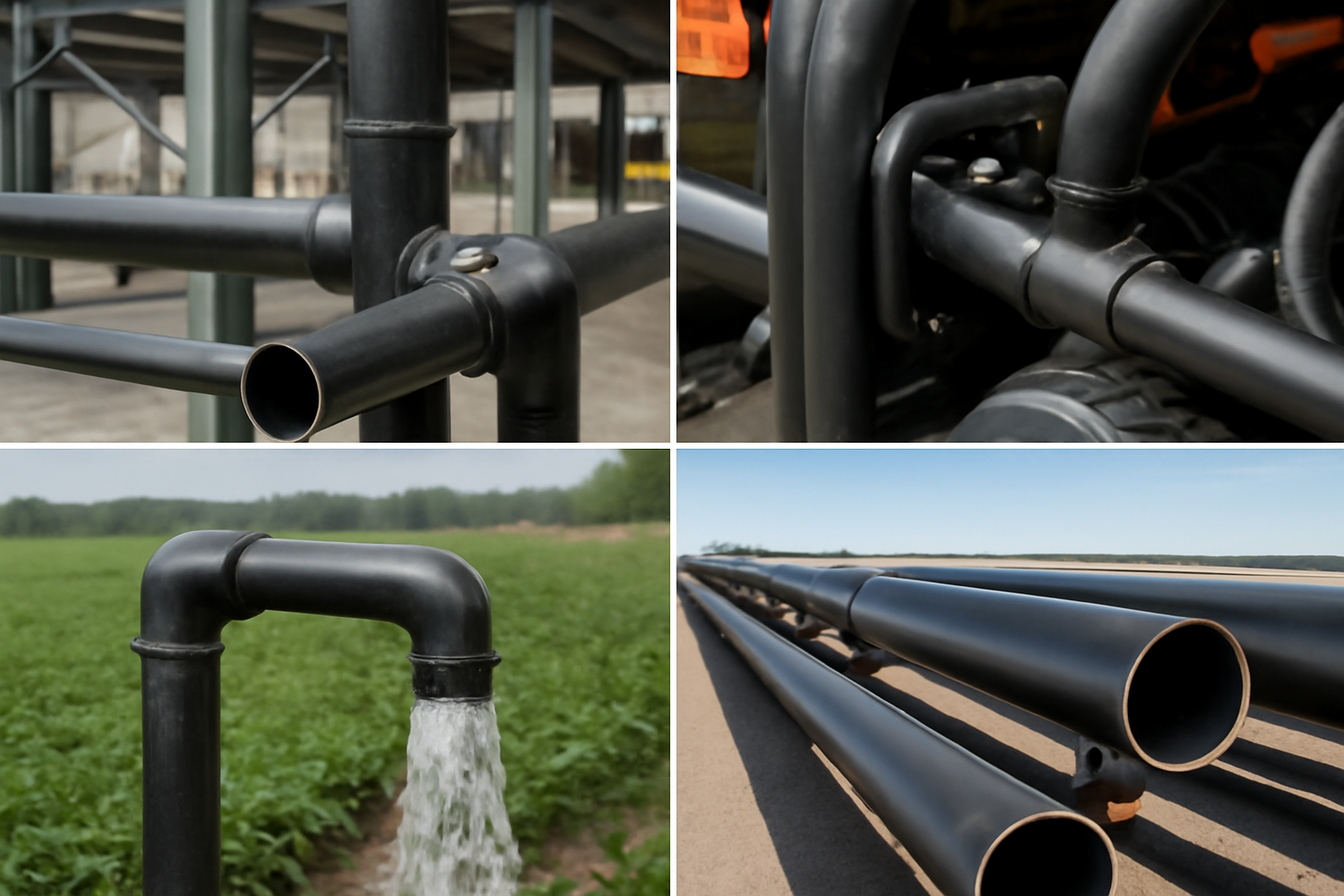In the steel industry, black pipe is a common basic material widely used in construction, machinery manufacturing, petroleum, natural gas, and other fields.

- What is black pipe?
Black pipe, as the name suggests, refers to steel pipes that have not undergone galvanization, painting, or other surface treatments. Its surface typically appears black due to oxidation of the steel pipe’s surface. This type of steel pipe is usually made from carbon steel or alloy steel, offering excellent strength and durability. Black pipe is primarily manufactured through processes such as hot rolling, cold rolling, or drawing, with specifications such as outer diameter, wall thickness, and length customizable according to specific requirements.
Unlike other types of pipes such as galvanized pipes or aluminum pipes, black pipes do not have a surface coating, so they may be more prone to oxidation and rusting in certain environments. However, precisely because of this, black pipes have significant advantages in applications requiring strength and structural integrity.
- Characteristics of black pipes
Simple surface treatment: The surface of black pipes is not painted or galvanized, presenting a natural black or gray color, making it easy to undergo further processing during manufacturing. Although its corrosion resistance is relatively poor, black pipes can still provide sufficient strength and performance in certain internal environments.
High strength: Made from steel, black pipes have high compressive and tensile strength, making them suitable for applications requiring high load-bearing capacity.
Low cost: Compared to galvanized pipes, stainless steel pipes, and other materials, black pipes have lower production costs, making them a cost-effective choice.
Easy to process: Black pipes can be processed through cutting, bending, welding, and other methods, making them suitable for various industrial needs.
- Comparison of black pipes with other types of pipes
Comparison with galvanized pipes:
Galvanized pipes have a zinc coating on their surface, which effectively prevents corrosion, making them more corrosion-resistant in outdoor environments. Black pipes, however, have no surface treatment and are suitable for indoor or dry environments; prolonged exposure to outdoor conditions can cause them to rust easily.
Comparison with stainless steel pipes:
Stainless steel pipes have superior corrosion resistance and are commonly used in high-temperature, high-humidity, and chemically corrosive environments. Black pipes, however, offer lower costs and are suitable for applications where corrosion resistance is not a primary concern, and strength and structural integrity are the main requirements.
- Main Applications of Black Pipes
Black pipes have widespread applications across multiple industries, particularly in construction, machinery, oil, and natural gas sectors.

Construction and Structural Engineering:
Black pipes are widely used in the construction industry for building scaffolding, connecting and supporting steel structures. Due to their high strength, they can withstand significant pressure and loads, making them an important component of building structures. Common applications include supporting columns and beams in buildings, as well as connecting steel structures.
Mechanical Manufacturing:
In the mechanical industry, black pipes are used as part of transmission systems in hydraulic systems, the automotive industry, and other mechanical equipment. Black pipes can not only withstand high pressure but also have good wear resistance, making them suitable for the transportation of liquids and gases.
Petroleum and Natural Gas Industry:
Black pipes also have important applications in petroleum and natural gas transportation systems. Due to their high strength and durability, they are commonly used in the construction of petroleum pipelines and natural gas pipelines. These pipelines need to withstand complex environmental pressures, making black pipes an ideal material.
Agriculture and Irrigation:
In the field of agricultural irrigation, black pipes are used as irrigation pipelines. Due to their strong pressure resistance, they can maintain stable performance over extended periods, making them a common component in agricultural irrigation systems.
Other Industrial Applications:
In addition to the aforementioned industries, black pipes are widely used in home appliances, shipbuilding, railway construction, and other industries as structural components or support materials, playing a significant role.
5.Market Prospects and Development Trends for Black Pipes
With the continuous growth of the global construction industry, machinery manufacturing industry, and oil and gas industry, the market demand for black pipes continues to increase. Especially in high-strength application areas, black pipes have become an indispensable material in the market due to their high cost-effectiveness.
In the future, the production processes for black pipes will continue to innovate, particularly in surface treatment technologies, which may introduce new techniques to enhance corrosion resistance and service life. Additionally, with the growing emphasis on environmental protection, green production and sustainable development will become major trends in black pipe manufacturing.
As a common basic material in the steel industry, black pipes are widely used in various industries such as construction, machinery manufacturing, and oil and gas due to their high strength, low cost, and ease of processing.Although they have certain limitations in terms of corrosion resistance, black pipes remain the preferred material for many industries due to their cost-effectiveness. With technological advancements, black pipes will have even broader application prospects in the future.
